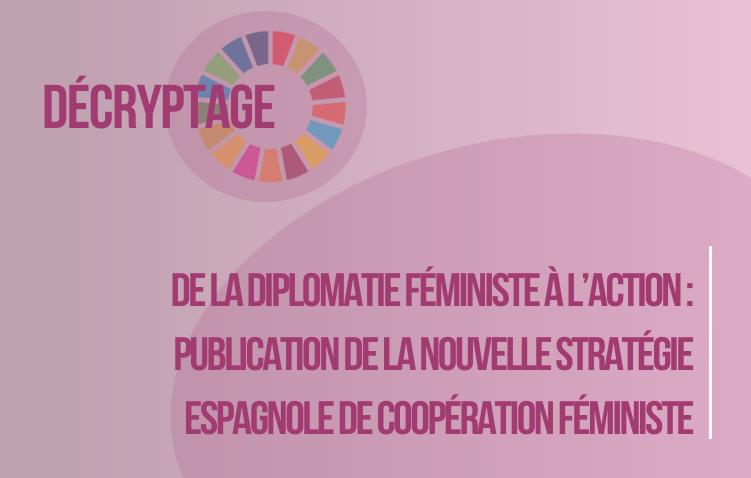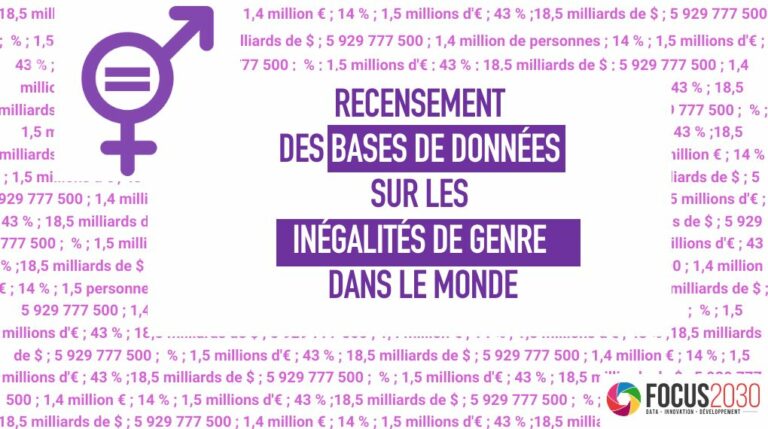Where does the fight against Female Genital Mutilation stand in the world ?
Publié le 08/03/2023, modifié le 09/02/2026.
|
Special edition on the state of gender inequality around the world in 2025: This overview focusing on the access to contraception around the world is one of the components of a special report dedicated to gender inequalities in the world in 2025. |
Celebrated on February 6, the International Day of Zero Tolerance for Female Genital Mutilation, is an opportunity to remind ourselves that 230 million girls and women in the world today have undergone female genital mutilation (FGM). Most often performed during childhood between the ages of 0 and 15, FGM refers to all procedures that involve partial or total removal of the external female genitalia, or other injury to the female genital organs for non-medical reasons.
While cases of FGM are reported all over the world, the practice is thoroughly documented in 31 countries, mainly in sub-Saharan Africa, but also in the Middle East (notably in Yemen and Iraq) and in some Asian countries such as Indonesia. In nine countries, more than three out of four women and girls have undergone FGM : Somalia, Guinea, Djibouti, Mali, Egypt, Sudan, Eritrea, Sierra Leone and Burkina Faso.
Context and figures
|
The partial or total removal of the clitoral glans (FGM type I) and female circumcision (type II) are the two most frequently practiced types of FGM. Beyond the mutilation itself, which is rarely performed under anesthesia, FGM has serious repercussions on mental and sexual and reproductive health of girls and women. Depending on the type of practice, the hygiene conditions or the expertise of the person performing the operation, complications can arise that can lead to death or increase the risk of HIV transmission. FGM is generally performed by traditional birth attendants or elders in their communities. Several surveys report the increasing involvement of health professionals in the practice, giving FGM an appearance of legitimacy and absence of health risks. According to recent estimates by UNFPA – the UN agency focused on sexual and reproductive health – of all women aged 15-49 who have undergone FGM, approximately one in four FGM has been performed by health workers. This is the case for more than one-third of Egyptian women and two-thirds of Sudanese women. |
How many girls and women are affected ?
While 230 million girls and women in the world today are estimated to have undergone FGM, the practice of FGM has declined over the past three decades. In the 31 countries with nationally representative prevalence data, today about one in three girls have undergone the practice compared to one in two in the 1990s.
However, despite a general decline, not all countries have made progress. In 2026, 4 million girls are expected to undergo FGM. At this rate, that number could reach 22.7 million by 2030.
Today, most countries have banned the practice. FGM is a violation of the fundamental rights of girls and women, and is condemned by several international conventions and treaties, such as the International Convention on the Rights of the Child, the Convention on the Elimination of All Forms of Discrimination against Women, and the Maputo Protocol, ratified by 42 African countries.
Despite UN summonses to ban the practice everywhere, some countries, such as Mali and Indonesia, have still not passed legislation on the subject. The majority (80%) of countries where FGM is part of local custom have banned the practice. For some of them, the ban is not always respected: this is notably the case in Senegal, where almost 24% of girls aged between 15 and 19 have been victims of FGM, despite the fact that it has been banned in the country since 1999.
Legal frameworks themselves can also be challenged or undermined. Recent debates in The Gambia, where a proposal to repeal the law banning FGM emerged in 2024 under pressure from conservative and religious groups, illustrate the risks of legislative backsliding. These dynamics serve as a reminder that the adoption of a law, while an essential step, does not guarantee its effective implementation or sustainability, and must be accompanied by sustained political commitment and substantive work with the communities concerned.
Across all countries for which data is available, the majority of girls and women declare that the practice should be stopped, but wide variations persist: almost all Tanzanian women (98%) consider that FGM should be stopped, while less than one in five Malian women (17%) believe that the practice should be stopped. A correlation exists between the practice of FGM and its social acceptance: in countries where it is more widespread, fewer women declare that the practice should cease.
Needs and mobilization of the international community
In 2008, UNFPA and UNICEF established the Joint Programme on the Elimination of Female Genital Mutilation, the largest global programme to accelerate the elimination of the practice and address its consequences. It works at the community, national, regional and global levels to raise awareness of the effects of FGM.
UNFPA estimates that $275 million will be spent on combating FGM by 2030, while $2.4 billion is needed to reach the zero genital mutilation goal in the 31 priority countries.
France’s commitments
In 2022, France called on the international community to intensify efforts to end this practice and announced an increased financial support of 300,000 euros compared to 2021 as part of the National Action Plan against Female Genital Mutilation launched in 2019.
France also supports civil society actors and funds including :
- The French Muskoka Fund and the United Nations Population Fund (UNFPA), which are committed to the eradication of FGM
- The Global Survivors Fund for survivors of conflict-related sexual violence, founded by Nobel Peace Prize laureates Nadia Murad and Denis Mukwege, with a budget of 6.2 million euros between 2020 and 2022
- The Panzi Foundation and Hospital (Democratic Republic of the Congo) where Dr. Mukwege works.











